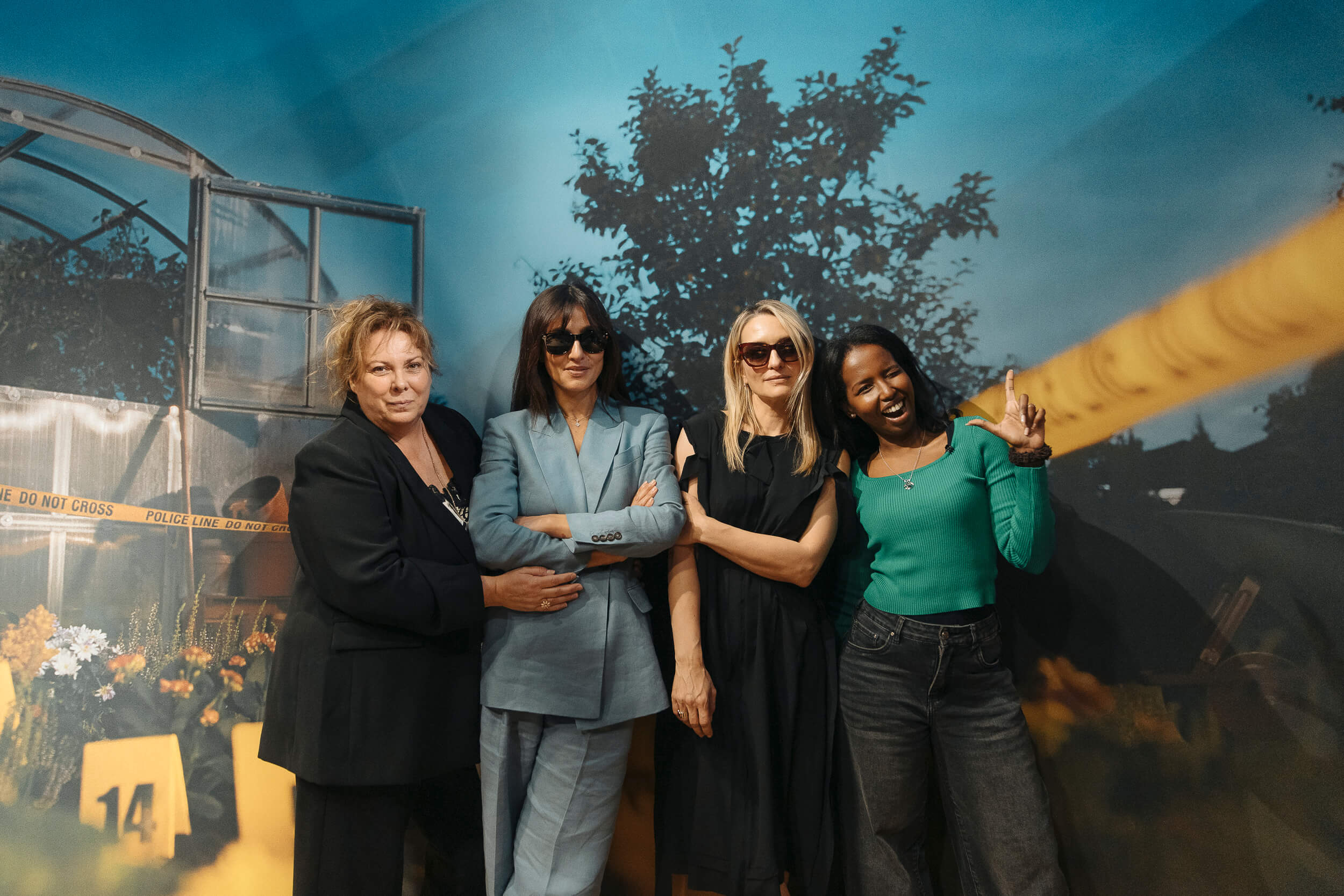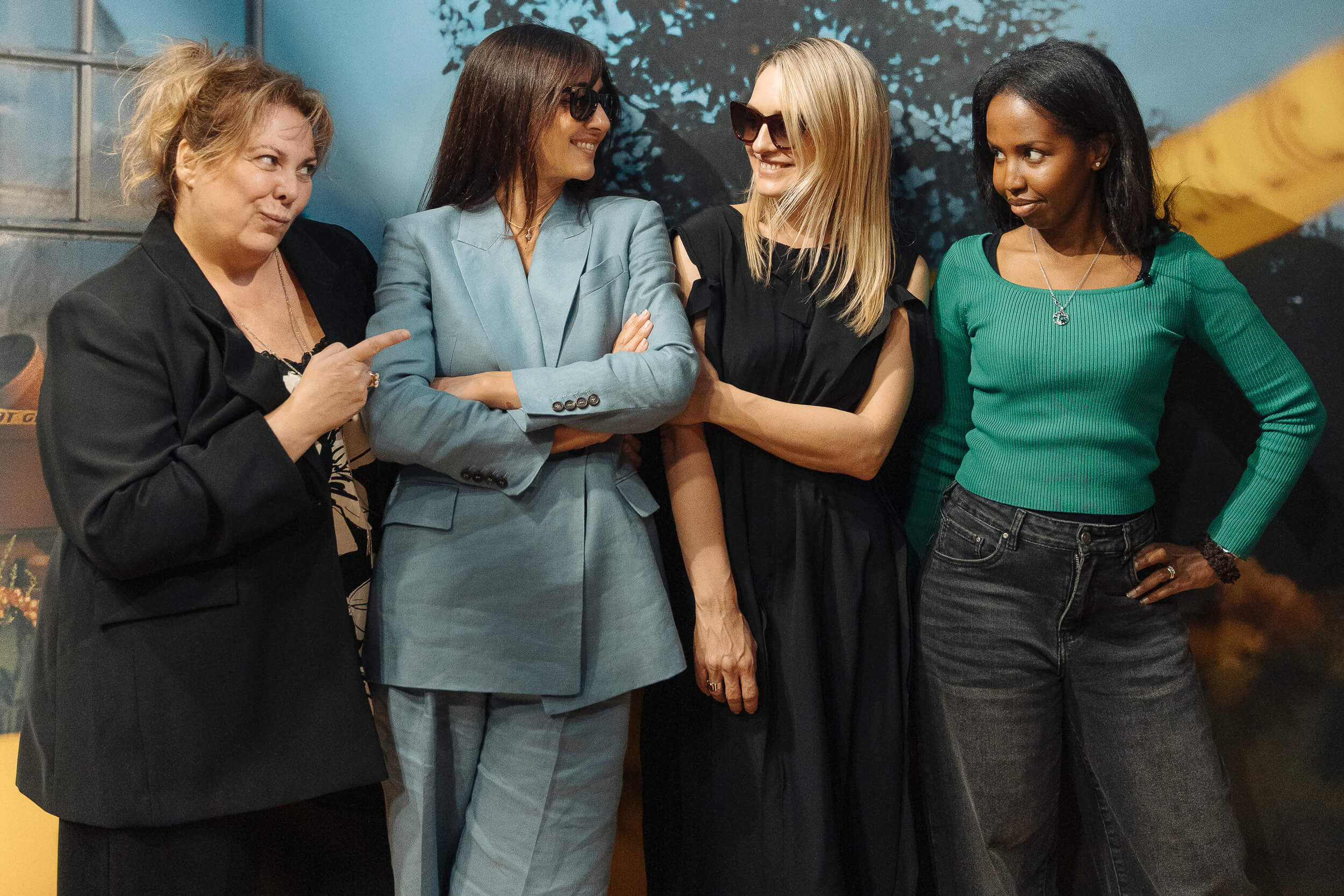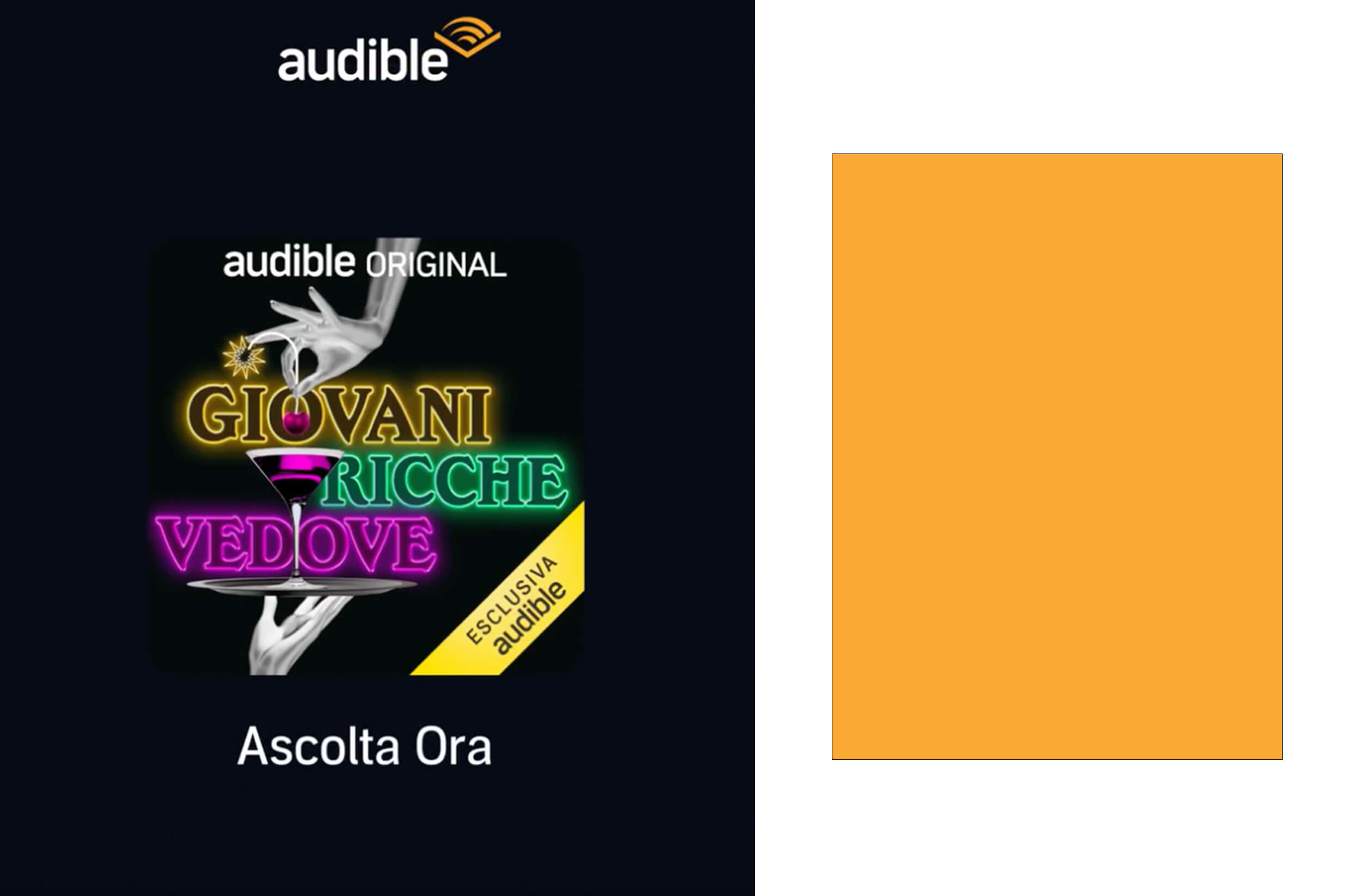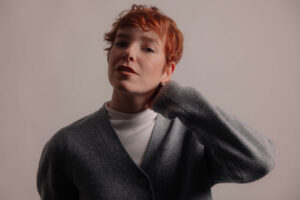“Young, Rich and Widowed” is an audiobook that blends sharp irony, mystery, and a sincere look at the vulnerabilities and strengths of women. Presented at the Turin Book Fair, this Audible project brings together four outstanding performers – Carolina Crescentini, Ambra Angiolini, Ilaria Stagni, and Fatima Romina Ali – who give voice to protagonists very different from one another, yet united by a common fate and a surprising sense of female solidarity.
In this interview, the actresses and voice actresses share what drew them to the story and how they worked to bring depth, nuance, and credibility to complex characters using just one tool: their voice. What emerges is an honest exchange about the craft, the care required to tell a story well, and that “artistic sisterhood” that can even arise from afar, when each person is working toward the same goal: building a believable, alive, and compelling world together.

What fascinated you most about the story of “Young, Rich, and Widowed” when it was proposed to you? And what convinced you to say “yes”?
Carolina: It struck me as a very fun and intelligent project. I liked the honesty with which each character immediately casts judgment on the other, only to completely change their mind and grow through the other. So I loved the concept of sisterhood that emerges from the text.
Your four protagonists are very different but bound by a common destiny. How did you relate to their inner conflicts and the secrets they keep?
Ambra: I related thanks to our director, because voice acting, like audiobooks, is an art of its own. Not everyone can do this job—you have to study, have a certain command of your voice, and be able to communicate emotions through just that. So, it was a beautiful journey for me personally, beyond Meredith, who is “my woman.” The experience was wonderful, and I hope to do it again: maybe Meredith is just the first birth!
What kind of vocal, technical, or emotional work did you have to do to make each scene vivid and believable without images?
Ilaria: Working with them—my team—was a joy, an honor, and an incredible surprise. They’re actresses, so they know how to do this job. An actor should be an actor 360 degrees, meaning they should use their voice like a musical instrument, and they were able to do that, of course with a few adjustments. But that’s the essence: “Just act.”
After giving voice to such complex women, what do you take away from this experience?
Fatima: We take with us the experience and the awareness that even in paradoxical situations, like murder cases, women—then as now—face the same doubts, love, family, career. That’s perhaps the common denominator for all the women we meet on our path.
This project also speaks of empowerment and sisterhood. Did you feel part of an “artistic sisterhood” during the making of the audiobook?
Carolina: Unfortunately, we worked separately, because, just like the text is written, each chapter is a different character. So this, right now, is our chance to be together.
What’s your favorite book, and who would you like to hear reading it?
Ambra: Wow, holy moly! [laughs] I’d want it read by that wonderful person who inspired me to do this job: Lorella Cuccarini. I’d love for her to read the book that shaped my life: “Fräulein Else” by Arthur Schnitzler. Read by her, it would be a journey that would reconnect a series of things I’ve felt.
Ilaria: For me, “The Master and Margarita,” read by an actor with some real guts, like Pannofino or Favino.
Fatima: My wish has already come true, because my favorite book is “Anna Karenina,” and it’s already been beautifully read for Audible by Anna Bonaiuto.
Carolina: I’d want “A Little Life,” a wonderful book that made me cry so much, to be read by Luca Marinelli.

Ambra, you said Meredith represents many of the values you defend in life. What was the biggest challenge in giving her a voice in such a tense and ambiguous context?
Believing in it completely without thinking about the fact that Meredith is a woman, that she’s gay. Values are values—they don’t have a gender, and when we assign one, we usually end up ghettoizing things ourselves. These beliefs are deeply rooted in me, so I was happy to meet Meredith: I saw her as a free woman, who expresses herself with courage, kindness, truth; she changes her mind, suffers, hurts, and keeps fighting in her own way. I really like this character, though I would’ve loved to play Carolina’s role too! [laughs]
Carolina, your character Krystle is a strong, free woman. Was there a particular moment in the story when you felt completely in sync with her or totally distant from her?
In sync—without giving too much away—when she at some point allows herself a “future.” I liked this leap, also considering the culture she comes from—it’s a very brave choice. Generally, she’s not jealous, but she always has something to say about everyone—and that’s not something I relate to.
Fatima, your character Justine faces pain and fights for the truth. How did you work on her voice to convey these emotional nuances in audio format?
I was certainly supported by Ilaria’s direction, who guided us through the process, also to keep everything coherent with the overall narrative. And a bit, as all actors do, you draw from your own experiences, your own baggage.
Ilaria, besides playing Camille, you also directed the entire audiobook. What was it like to lead an all-female cast in such a dense and intense piece?
It was beautiful, modern, different. I felt completely comfortable with them, no filters: total truth, absolute freedom, even discussing contrasting opinions. It was a collaboration, because that’s how it should be.

Photos by Luca Ortolani.
Thanks to Audible.





